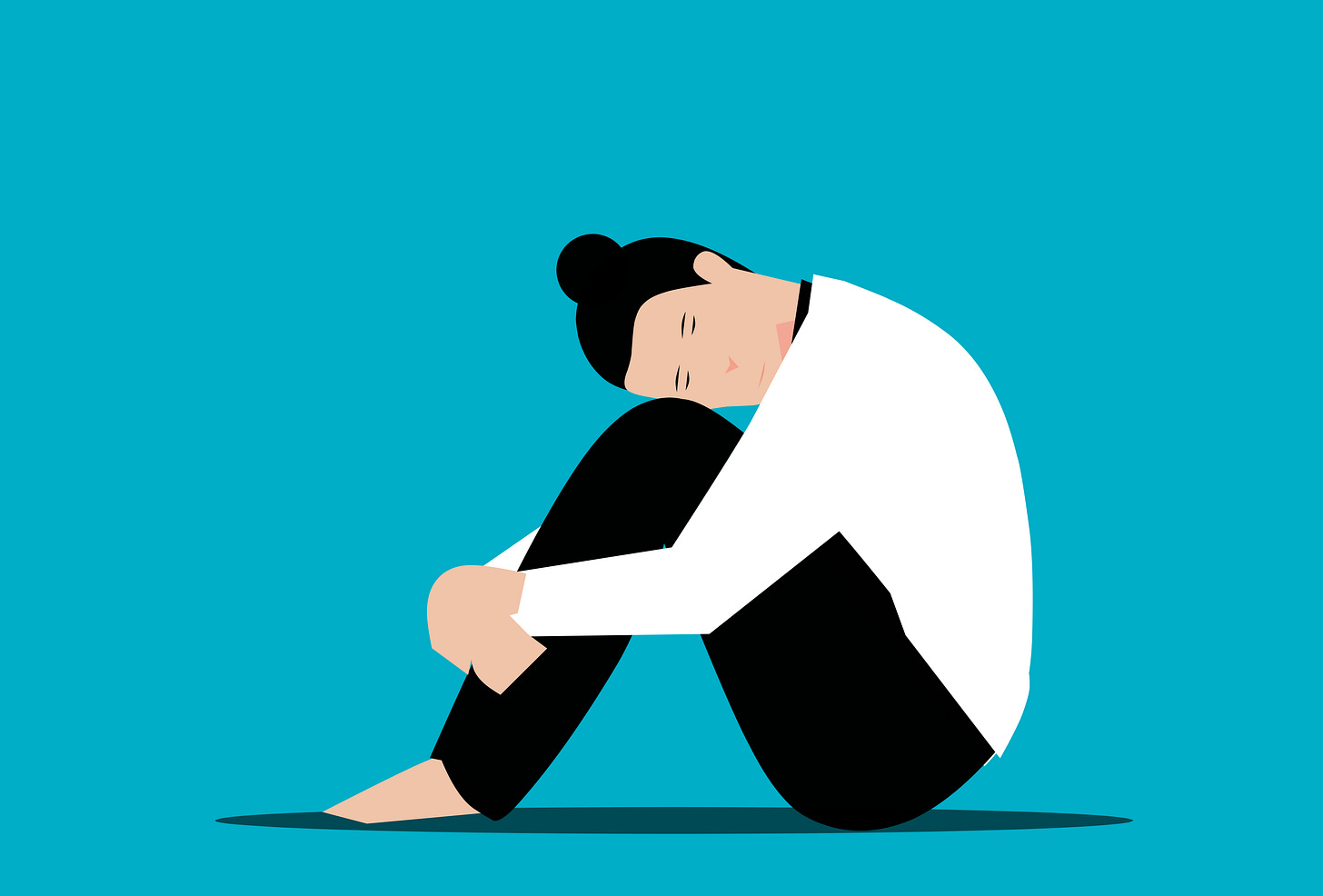EXHAUSTED
Life in burnout recovery with chronic fatigue

Recently I wrote about chronic fatigue and how it impacts my everyday life. Two years into burnout recovery and I’m still pretty knackered after not doing much. There’s hope for the future—but sometimes that feels like a long way off. I’m better than I was a few months ago, but I’m still not fully “recovered”, so to speak, and to make matters worse it seems a pervasive sense of exhaustion has set in that won’t go away.
In this post, I want to share some of the ways I deal with my chronic fatigue and exhaustion and how I’m helping myself feel better as I come out of burnout. I don’t want to presume that I know what will work for you; this is simply what works for me, and I’d love for you to add your suggestions and experiences in the comments below. Let’s dive into it…
Fire your doctor
I’m serious! You need a doctor who will go over you and any test results you have with a fine-toothed comb. Don’t settle for a doctor who says your test results are “good enough” or who doesn’t pick up on results that are borderline high or low but still in the “normal” ranges. If you’ve been under the care of the same doctor for a few months and you’re not getting any better, fire them and find a new one.
Supplements
This isn’t going to work for everyone, but you might find you feel better taking supplements than not, especially if you suspect adrenal fatigue, even if you don’t have any signs of deficiencies. It’s a good idea to take a broad-spectrum supplement even if you’re not deficient in anything, so I recommend you look out a good-quality broad-spectrum supplement without many ‘fillers’. Over the last couple of years I’ve experimented with B vitamins, magnesium and probiotics, and all of them did something for my energy levels but not enough to warrant taking them long-term. That said, they (or something else) could work for you, so I encourage you to try a bunch of different things (but not all at the same time) and to regularly get tested for deficiencies, as I do.
Get regular blood tests
I’ve had more blood tests in the last couple of years than I have in the nearly thirty years I’ve walked this planet. Make sure your doctor is thorough (see Point 1) and on the lookout for anything slightly unusual. I’ve been tested for iron deficiency, vitamin deficiencies, and thyroid abnormalities as well as cancer markers (because I have ovarian cysts). It’s a good idea to have blood tests regularly even if everything is in the “normal” ranges1, just to keep an eye on things (and yes, I am squeamish with blood and needles, but I still get it done because I now realize how important it is!).
Cut back on cardio
Everyone tells you to get out there for a walk or a run, and that’s great—if it will actually make you feel any better. The problem with chronic fatigue (particularly if you think it’s caused by burnout and/or adrenal fatigue) is that it probably won’t make you feel any better to do cardio, especially not high-impact stuff like running. I highly recommend cutting back on cardio and doing strengthening/resistance exercises, especially if you’re a woman. There’s plenty of bodyweight exercises on YouTube if you don’t want to use weights (I mainly use workouts from The Girl With The Pilates Mat, but some of her workouts are quite advanced so I advise you to pick and choose as you please!).
Rest
Essential if you want any chance of overcoming fatigue. If you are struggling to find time to properly rest, check out my post on low-demand living and use the framework provided to free up some time for yourself to rest. If you don’t get sufficient rest you will simply perpetuate the boom-and-bust cycle, so don’t feel guilty for resting, even if you could be doing something ‘productive’. If rest helps you feel better, REST MORE!
Change your diet
If you’re subsisting on sugary-laden food and drink and then complaining about ‘fatigue’, that’s not fatigue: that’s a blood sugar rollercoaster. A low-sugar/low-carb diet will help get you off the rollercoaster, but in my experience it’s much easier to transition to a low-sugar diet than to a low-carb diet, so I suggest you start with that2. As a general rule of thumb, I recommend avoiding anything containing more than 5% sugar (5g per 100g)—most processed foods contain little labels on the back or side which tell you the sugar content. Also be wary of fruits that are naturally very high in sugar—it’s best to limit these to 1-2 whole pieces of fruit a day3.
Update: I don’t strictly follow a low-carb diet thanks to the work of people like Lara Briden and Dr Libby Weaver. I prefer ‘gentle carbs’, as Lara calls them (rice, quinoa, potatoes, sweet potato, etc). A word of warning on low-carb: “If you eat a very low-carb diet in any form, you need to ensure you obtain enough B group vitamins.”4
If you’re navigating life with chronic fatigue as I am, then you know as well as I do that recovery is about so much more than just “getting some rest” or going to bed earlier, although these things definitely do help, as I’ve recently had to admit!
It’s my belief that full and ongoing recovery from chronic fatigue requires a holistic approach to life and health, as well as a full overhaul and fundamental shift in how you live your life—which is why I’ve such taken drastic measures like changing my diet, cutting back on cardio and starting chiropractic care5. It’s all a journey, and I’m still discovering what does and doesn’t work for me, and I hope you do the same.
Here are some other posts you might find helpful:
Finding hope & beauty in the fallow season
There's a quote attributed to an unknown source that says 'often it takes a crisis for us to wake up.' I wish it wasn't that way, but unfortunately it was for me. I knew I wasn't well, physically or mentally, and I knew I wasn't going to get better in the environment that was making me sick. That environment was a particular job I had at the time where …
What does a low-demand life look like?
Welcome to the first edition of 2025! I hope you had a wonderful festive season & I look forward to sharing more neurodivergent insights with you in 2025, as well as my new series, the ✨ Digital Minimalism Diaries ✨, detailing my journey towards a more analogue life.
The vicious cycle of PMDD and auDHD
Yesterday I lay in bed wailing into my husband's warm, soft body: “I want to go away!” Any attempt he made to quieten me down was met with even greater resistance and increasingly loud wailing until I finally settled down and went to sleep. This happens every month without fail - a week or 10 days before my period I crumble into a crying, wailing mess, …
Calm Productivity
We all know hustle culture, right? And I think we’re all sick of it. I like being busy as much as the next person, but I don’t want to be go go go for the sake of it.
Until next time,
J x
My current doctor picked up on this from old test results even though previous doctors had always told me I was not iron deficient. I managed to rectify my deficiency through increasing my intake of red meat, but if you’re vegetarian or vegan you’re going to have to take a good-quality supplement (or possibly even have an iron infusion).
To quote
from her book I Quit Sugar: Simpilicious, ‘Quitting sugar is a big undertaking and one that will require your focus and willpower. Once you have mastered quitting sugar and if you feel a desire to do so, try cutting carbs for about 4-6 weeks and see if it suits YOUR body.’ I love her advice here: ‘Don't get caught up in what everyone else is doing. Experiment and learn for yourself—it's the only way to truly know if something works for you.’Another tidbit of wisdom from
, but I’ve also seen this in other health books so it bears repeating. Also be cautioned that fruit juice is typically very high in sugar.From this blog by Dr Libby Weaver.
I’ve improved quite a lot since started chiropractic care a few months ago. I thought I had the classic aches and pains of CFS until they went away after a few adjustments—turns out it was just tight muscles! If you’d like to know more about chiropractic stuff, let me know in the comments.






So relatable!